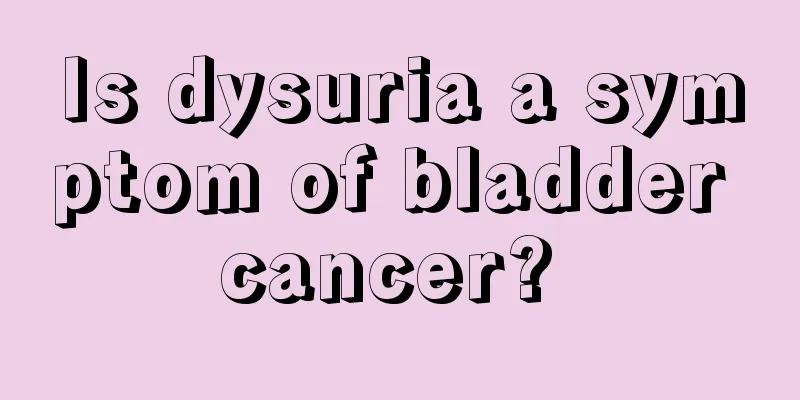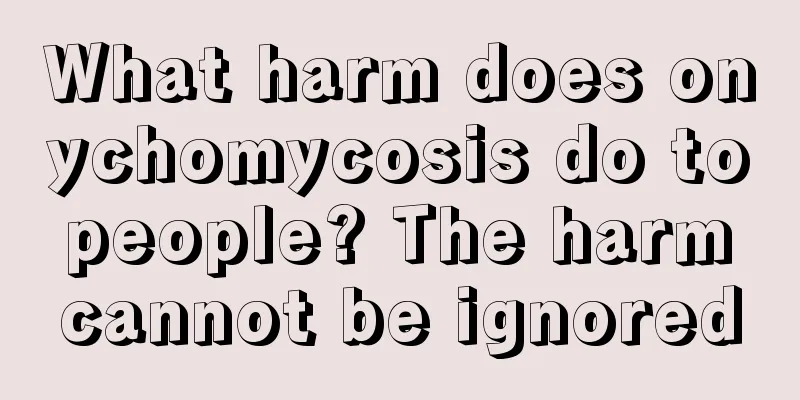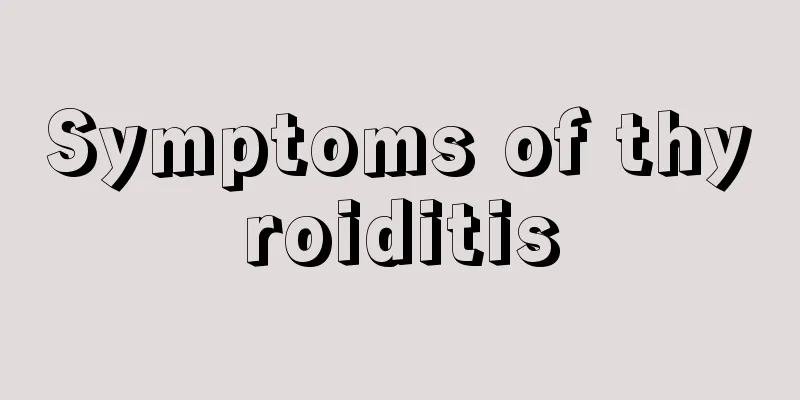Why are my hands shaking all the time?

|
Hand tremor is a relatively common phenomenon. The causes of hand tremors can be divided into two main categories. One is pathological factors, such as essential tremor and Parkinson's disease, which can cause hand tremors. Another is psychological factors, such as anticipatory anxiety, which can also cause hand tremors. If you want to cure the symptoms of hand tremors, you must treat the cause. Below, we will introduce the causes and treatments of hand tremors in detail. 1. Pathological factors 1. Essential tremor. The cause of this disease is unknown and it mainly affects the upper limbs and head. The main symptom is hand tremors when doing fine movements, such as writing, holding chopsticks, buttoning, etc. Hand tremors are more obvious when you are emotionally nervous or tired, and they are reduced or disappear completely when you relax or rest. Symptoms may be alleviated after drinking alcohol. Neurological examination showed no abnormalities except hand tremors. Currently, the most effective treatment for this disease is drug therapy. Taking medicine can improve symptoms, but they will relapse after stopping the medicine, which is the so-called "treating the symptoms but not the root cause." Essential tremor progresses very slowly or not at all and has little effect on daily life. 2. Parkinson's disease. This is a degenerative disease that occurs in the elderly. In addition to hand tremors, it is also accompanied by symptoms such as slow movements, limb stiffness, and poor balance. If not treated, symptoms will become more severe. This disease requires the help of a specialist to diagnose and treat. 2. Psychological Factors If pathological factors are excluded, another common cause of hand tremors is psychological factors. Anticipatory anxiety disorder. This type of question often creates a situation that the patient feels frightened about. For example, you may be very worried that your hands will shake when other people are around you at work, and then when someone comes in front of you, your hands actually shake. In anticipatory anxiety disorder, anxiety about symptoms that cause a psychological response can exacerbate or lead to the onset of symptoms. The onset of symptoms further intensifies anticipatory anxiety, thus forming a vicious cycle. You are trapped in this vicious cycle and cannot extricate yourself. From this we can see that what the patient is really afraid of is fear itself. 3. Psychotherapy 1. Reduce self-focus. What it means is that you shift your focus to the specific situation you are facing, rather than focusing on your feelings. This is very important. When you find yourself paying attention to whether your face is red or your heart is beating faster, the activity of your nervous system will be involuntarily activated or strengthened. By paying less attention to it, you can give it a rest, and the intensity of the impulse will naturally weaken. In order to reduce the focus on yourself, you must learn to focus on your real problems in the situation you are in, such as your application, your examiner, your environment, etc. 2. Give up the desire to control. What it means is that usually when we find ourselves feeling unnatural, blushing, or having shaking hands, we will consciously or unconsciously make efforts to control these reactions. The problem is that the work of the autonomic nervous system is difficult to be controlled by our consciousness in a short period of time. Therefore, the harder we try to control, the more likely we are to find that our control is ineffective, and as a result, we end up in a state of tension or even anxiety. But if we give up the intention to control and ignore it, it will go out automatically. Giving up the intention of control requires you to be aware of the worst consequences and be able to accept them calmly: At worst, I may not be selected this time, but I can always make a comeback! I am still young and I am not afraid of temporary setbacks, and I will not be discouraged! 3. Cultivate an accepting attitude. What it means is that we have to learn to make friends with our symptoms. When we find ourselves shaking with desire or blushing, we should not become an enemy of it, fight it, or try to control it, but learn to accept it. We can say to ourselves: I am just a little timid and shy, and that’s nothing. Come on, just blush and tremble. If you can say this to yourself (i.e. talk to yourself), the nervous system's work will become less intense and its impact on us will be reduced. And our confrontation strengthens it. Accept it, it's okay. If you can live peacefully with the symptoms, you will definitely be fine. With an accepting attitude, you can overcome hardness with softness and win with wisdom. |
>>: How can people with poor physical condition improve
Recommend
Suitable exercise methods after breast cancer surgery
After breast cancer surgery, the patient's bo...
Why are blisters itching between toes?
Blisters grow between the toes and are itchy. Gen...
What are the risks of lumbar spinal stenosis surgery
Any surgery has risks. Before the operation, the ...
How much does it usually cost to treat skin cancer
After patients are diagnosed with skin cancer, th...
Symptoms of thigh tendinitis
Thigh tendonitis may cause joint stiffness, restr...
The significance of bimanual bladder examination in the diagnosis of bladder cancer
For middle-aged and elderly patients with painles...
How long does it take to cook zongzi
In some traditional cultural festivals in China, ...
How to read the thermometer
There are two types of thermometers, one is a med...
Are there any side effects to blue light therapy for babies
Some newborn babies may develop jaundice due to c...
How should a swollen and painful throat be treated?
Throat swelling is a common symptom, and not only...
Experts explain common symptoms of ovarian cancer
With the change of ideas, many female friends hav...
How long can a person with liver cancer live? Three factors that affect the survival period of liver cancer
In fact, there are many reasons that may cause pe...
Can toothpaste cure athlete's foot? How to use toothpaste to treat athlete's foot?
Many people have tried their best to cure athlete...
How to remove black caries by yourself
Everyone's dental caries condition is differe...
Which department should I go to for lower back pain
When feeling unwell, most people will choose to g...









